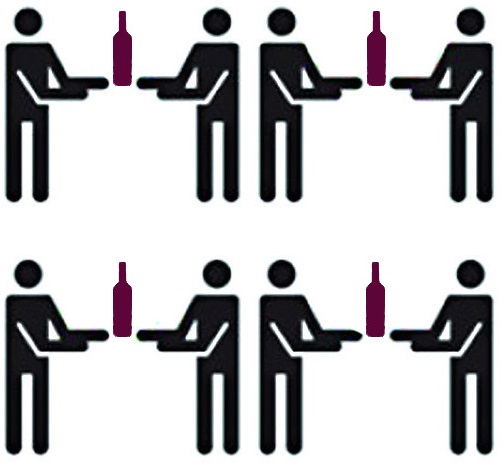by Wine Owners
Posted on 2015-08-13
The vision of a sharing economy is a far-reaching and powerful model that is beginning to shape current business practices by leveraging technology and allowing individuals to act as producers, entrepreneurs, collaborators, financiers and a myriad other roles.
“Marketplaces” provide transactions among multiple buyers and multiple sellers. Amazon and eBay are businesses that were created over the last two decades to enable peer-to-peer transactions. There is no doubting the power of creating an environment where thousands of businesses and millions of individuals can trade with one another.
“Workflow” Software as a Service (SaaS)platforms make it easy to manage and track activities that may be focused on short term or very long terms goals, whilst making it very easy for everyone to participate in the marketplace. The integration of workflow and marketplace is what distinguishes them from other marketplaces.
Consider Wine Owners activities’ through the prism of a Workflow Marketplace.

Firstly Wine Owners was conceived as a way of simplifying and simultaneously enriching the ‘wine lives’ of those with a passion for wine through a broad set of structured functionality and market information. This makes research, management and collection tracking substantially easier and less time consuming than before.
Secondly the trading exchange (marketplace) allows anyone to transact with anyone, in the knowledge that everyone has access to the same information, pricing assumptions, settlement and fulfillment processes. This many-to-many transaction pattern is key. Wine Owners is an N-sided marketplace — transactions happen between any participants, individuals and businesses, experienced and inexperienced alike. The pattern of trading counterparties is like a network. That makes Wine Owners both a marketplace and network.
A market network often starts by enhancing a network of professionals or high net worth individuals that exists offline. Many of them have been transacting with each other for years using email, mail, phone calls. By moving these connections and transactions into a SaaS Workflow, a market network makes it significantly easier for deals to be done and clients to get better service.
The Market Network is particularly relevant for complex, high value transactions. In wine, market fragmentation, tax status and specific logistical requirements make a prima facie straightforward commodity rather more complex as a peer-to-peer proposition. A market network is therefore the ideal model to simplify wine management and trading and so increase transaction velocity, satisfaction and build long-term relationships.

The principles that guide us are: the free flow of information; transparency in pricing and valuation; the ability to be in control of one’s own wine-related activities; the potential to sell excess wine; the creation of shared and accepted ‘rules’ about how to undertake and settle trades. All of these are important in contributing to an infrastructure where individuals and trade participants can benefit from the Wine Owners market network with confidence; safe in the knowledge they are operating within a sustainable and fair system.

